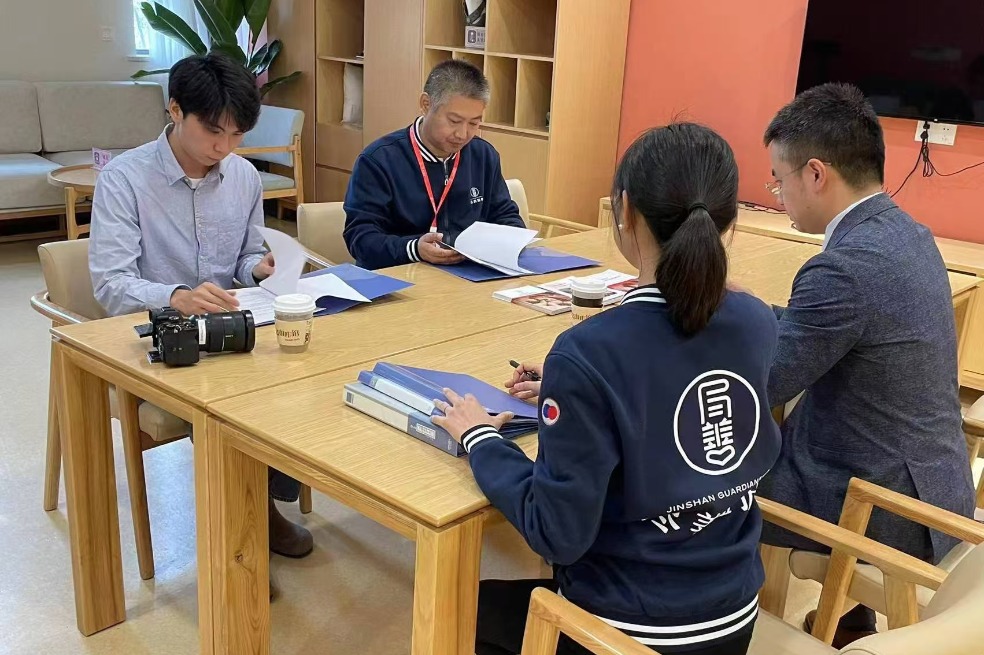Increasing consumption to drive quality growth


The third session of the 14th National People's Congress set China's economic agenda for 2025, with special focus on boosting demand and enhancing investment efficiency. Since one of China's major challenges is insufficient domestic demand, boosting demand is a core objective of the government this year.
Domestic demand can be divided into two parts: personal consumption and public consumption, with public consumption primarily focusing on public services and infrastructure development.
In terms of personal consumption, China needs to take measures to boost both supply and demand. On the supply side, optimizing the supply of the consumer goods and services involves two main aspects.
First, there is a need to empower traditional enterprises through technological advancements, including digitalization, to improve production efficiency and enhance the quality of products and services. In this regard, Chinese automakers are already promoting smart, light and electric vehicle technologies, enhancing the competitiveness of the country's auto industry.
Second, the authorities need to foster technological innovation to create new products, services and ecosystems that cater to emerging consumer needs. By improving the supply side, China can boost consumer demand and drive growth through innovative endeavors, including in the fields of films, animations, online literature and gaming. In recent years, games like Black Myth: Wukong have captivated audiences worldwide with their creative approach, boosting economic development and expanding China's cultural influence globally.
In order to boost demand, the authorities should first help increase the purchasing power of consumers. Initiatives such as equipment upgrading and trade-in programs will encourage consumers to spend more on goods and services. On this front, the trade-in policy has already shown positive results in the automobile sector, with a notable increase in car sales.
According to the China Association of Automobile Manufacturers, car sales in 2024 grew by 4.5 percent year-onyear. This growth, achieved on an already high base of the previous year, can be partly attributed to the implementation of the trade-in policy.
To increase consumer spending, the central and local governments should continue supporting personal consumption, and encouraging financial institutions to help consumer markets grow. In fact, financial institutions issued more consumer loans last year, creating a win-win scenario for both the financial sector and consumers.
But while encouraging people to spend more on goods and services is necessary, helping enhance their purchasing power is equally, if not more, important. And since purchasing power increases due to rising incomes, it is essential for the government to take steps to increase people's incomes.
There are three sources of personal income: wages or salaries, business, and property sales. By implementing favorable policies and promoting technological innovation to strengthen industries, China is poised to boost the economy, which in turn will raise the employment rate and increase people's incomes. At the same time, by stabilizing the real estate and stock markets, and increasing stock dividends, the authorities can help households increase their income from property sales and investment.
Also, government subsidies are set to increase significantly, especially to help disadvantaged groups and improve social welfare programs such as healthcare, pensions, education and housing. This year will see the government acquiring existing housing stocks and turning them into affordable housing for urban residents. This move will greatly ease the housing burden of city residents and address the high real estate inventory problem.
In other words, boosting personal consumption requires optimizing supply and creating new consumption opportunities, as well as increasing incomes to unlock potential demand.
To boost public consumption, the central government has set the deficit ratio at around 4 percent this year, thereby bolstering the amount of resources at its disposal. The government introduced a debt conversion plan worth 12 trillion yuan ($1.65 trillion) in November to reduce the rising debts of local governments. The plan is aimed at replacing local governments' implicit debts with explicit debts, in order to revitalize their financial capabilities to a certain extent. This will boost their capacity to invest in local economic development and social welfare programs.
Both the central and local governments have a strong financial foundation, with accommodative monetary policy creating room for implementing more fiscal measures. In such circumstances, central and local government bonds will provide substantial funds for financing public works.
But while fiscal revenue is expected to increase this year, expenditure needs to be optimized. Over the past two decades, returns on investments have been diminishing because of the country's overreliance on investment-driven growth. To address the issue, the government should redirect part of the public spending to more efficient fields so as to increase revenue and social benefits.
To avoid redundant constructions and repetitive investments, it is imperative that governments at all levels meticulously plan their fiscal expenditure. Prioritizing limited financial resources in key areas is essential. For example, more fiscal funds should be allocated to social welfare programs to enhance the well-being and security of residents, which will help boost consumer confidence and spending. Besides, more investment is needed to promote technological innovation and high-quality development.
Looking ahead, while the dual engines of personal and public consumption will help boost domestic demand, coordinated efforts on both the supply and demand sides will increase public consumption. And the robust growth in domestic demand will inject new vitality into the Chinese economy, ushering in a new era of prosperity.
The author is a member of the Expert Committee for Information and Communication Economy, Ministry of Industry and Information Technology. The views don't necessarily represent those of China Daily.
If you have a specific expertise, or would like to share your thought about our stories, then send us your writings at opinion@chinadaily.com.cn, and comment@chinadaily.com.cn.


































